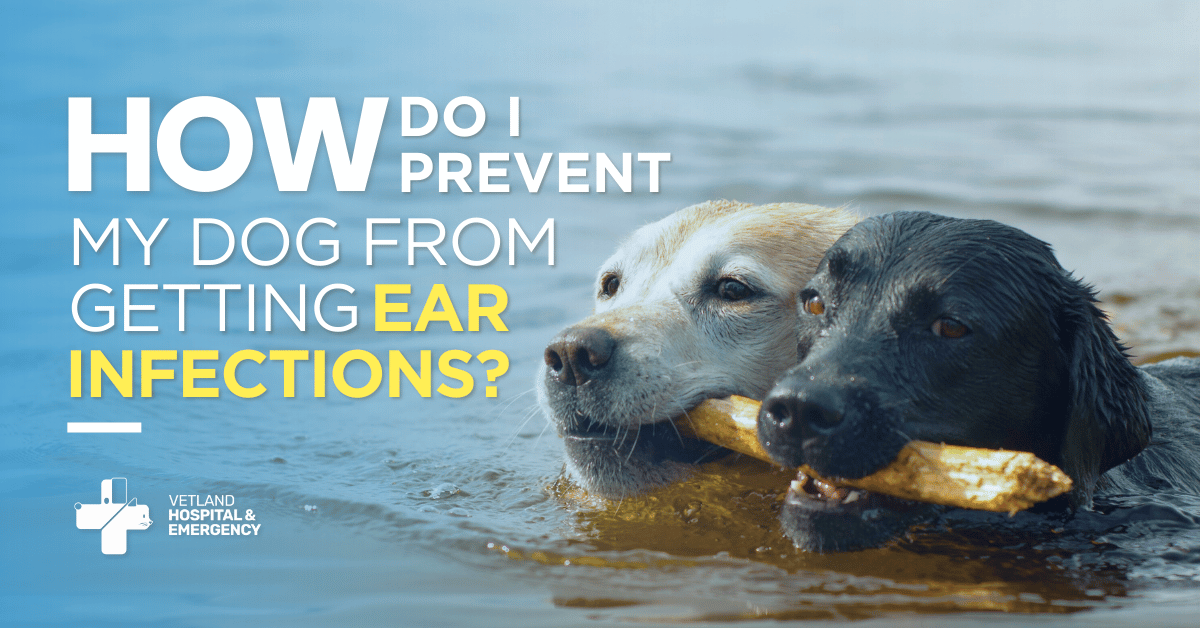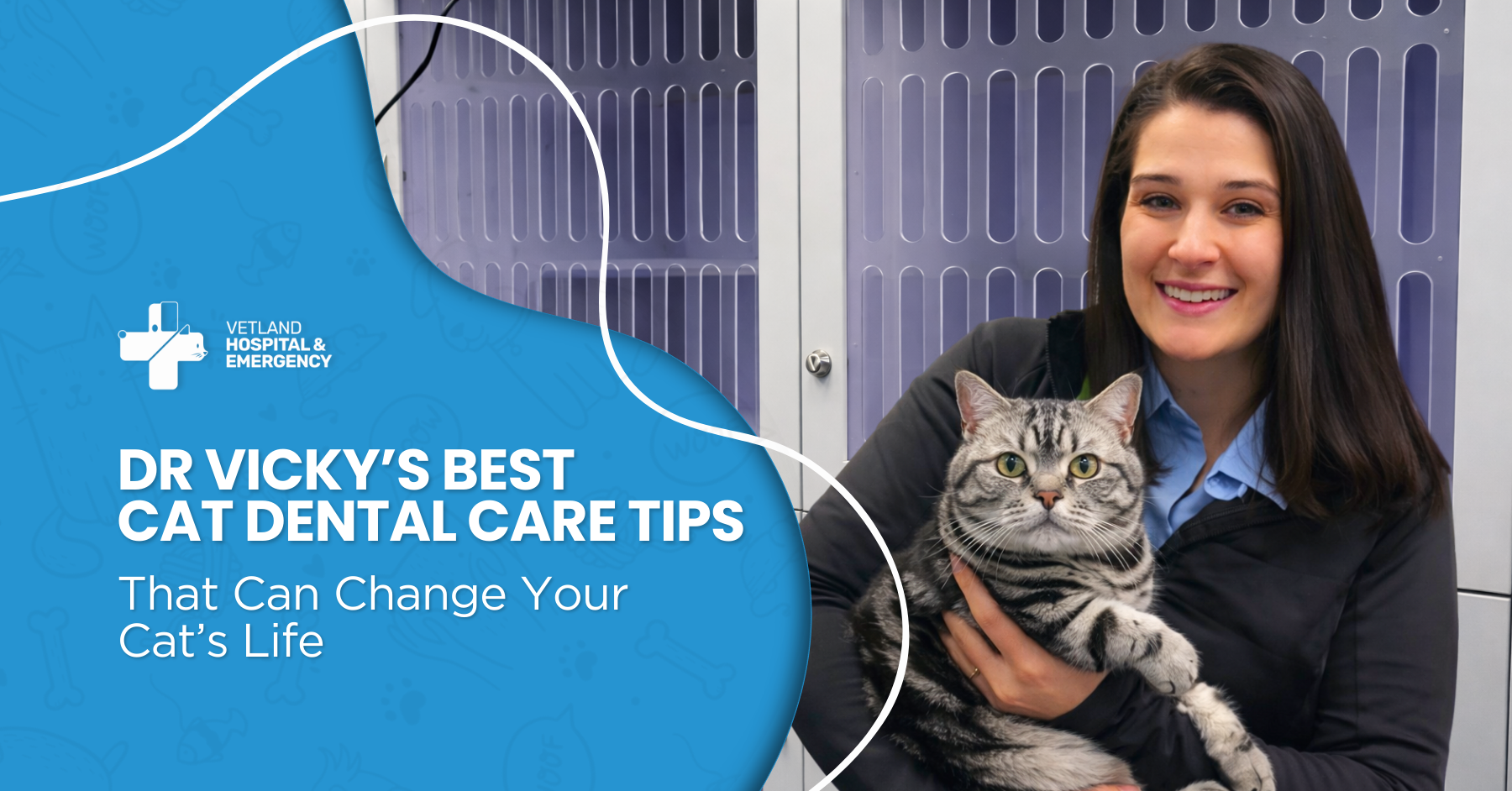Dr Vicky’s Best Cat Dental Care Tips That Can Change Your Cat’s Life
Your cat may be hiding dental pain right now, would you know it? Cat dental care matters for one reason—it hurts.There are no obvious symptoms, but...
2 min read
![]() VetLand Hospital & Emergency
Oct 25, 2024 1:51:26 PM
VetLand Hospital & Emergency
Oct 25, 2024 1:51:26 PM

Watching your dog deal with ear infections is tough. A dog’s painful ear is uncomfortable, and can lead to bigger health problems if ignored. Let’s explore some effective strategies to keep your furry friend’s ears healthy and infection-free.
Smelly ears in dogs are usually a sign of an underlying issue, with ear infections being a common cause. These infections can result from several factors:
Understanding the different dog ear infection types is essential for proper treatment and prevention:
Here are some key signs to watch for:
If you notice any of these symptoms, it’s time to take action.
Unfortunately, most ear infections don’t usually resolve without treatment. In fact, ignoring them often leads to sensitivity of the ears, and reluctance of your pet to allow you to touch them. The sooner you seek help, the better the outcome for your dog. It’s important to note that treatment doesn’t always mean medication - many mild infections can be treated with antiseptic ear rinses.
Prevention starts with regular care and addressing any underlying issues:
Regular Ear Cleaning
Regularly clean your dog’s ears with a vet-recommended cleaner, but don’t overdo it—this can cause irritation. With so many varieties available, seek vet advice on which is best. If your dog has never had ear problems - ear cleaning can do more harm than good.
Manage Allergies
Allergies often trigger ear infections. Consult your vet to manage food or environmental triggers with solutions like diet changes, medicated baths, or anti-inflammatory treatments.
Proper Grooming
Dogs with a lot of ear hair need regular grooming to help with airflow. But be careful with ear plucking—it can sometimes make things worse. Your vet can give you the best advice on this.
If your dog is scratching at their ear, it’s time to consult your vet. Ears are extremely sensitive, and we’d rather get you help when the problem is only little.
In very sore cases, we often need sedation to assist with examining the ear canal as employ the help of video otoscopy to get a high resolution inspection of your dog’s ear canal and ear drum, helping us diagnose and treat the root cause effectively.
For recurring infections, explore advanced procedures and options that have transformed the lives of many pets suffering from chronic ear problems. Advanced surgical solutions such as Lateral Ear Canal Resection can offer dramatic relief. This procedure improves ventilation in the ear, reduces infection rates, and enhances your dog’s overall quality of life.
👉 Learn more about this innovative solution!

Your cat may be hiding dental pain right now, would you know it? Cat dental care matters for one reason—it hurts.There are no obvious symptoms, but...

What makes someone choose a career full of uncertainty, constant learning, and never-ending challenges?

Gentle. Precise. Designed for Comfort.